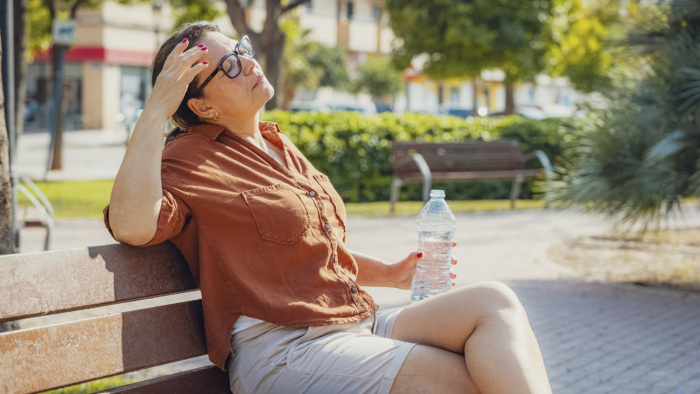
Basic Heat Illness Prevention Measures Help You Stay Protected During Hot Weather
Heat-related illnesses become more common when outdoor temperatures increase. But also when just doing heavy physical activtities. You should learn heat protection measures because they matter no matter if you work outdoors or exercise in the sun or simply spend time outdoors. The good news? Most heat illnesses can be prevented with a few smart habits. The following article presents functional summer safety tips to help you stay cool while maintaining proper hydration and protecting yourself from heat-related dangers.
Why Heat Illness Prevention Matters
Your body temperature regulation fails to function when you develop heat illness. Heat illness produces mild heat cramps and extends to dangerous medical conditions that include heat exhaustion and potentially life-threatening heat stroke.
The prevention of heat illness risks becomes simple when you establish appropriate precautions before starting any activity.
1. Drink Plenty of Water
The best way to protect yourself from heat exposure requires maintaining proper hydration levels. When your body performs sweating it releases water content along with essential minerals known as electrolytes. The ability of your body to cool down depends on receiving adequate fluid intake.
- Make water your beverage choice for regular daily consumption regardless of thirst sensations.
- Drinks with electrolytes become necessary for people who engage in physical activity and experience heavy sweating.
- Stay away from alcoholic beverages and caffeinated drinks since they increase dehydration levels.
2. Avoid the Hottest Part of the Day
During the mid-morning through mid-afternoon period the sun reaches its peak intensity. It is best to stay indoors or under shaded areas whenever possible during these peak heat hours.
- Start your outdoor activities during the morning hours before noon or schedule them during evening hours.
- Regular breaks in shaded or cool environments should be taken.
- Don’t push yourself - listen to your body.
3. Wear the Right Clothing
The clothes you wear influence your comfort level when temperatures rise outside.
- The best clothing choice for hot weather consists of lightweight and loose-fitting light-colored apparel.
- Cotton and linen fabrics enable skin to maintain proper ventilation.
- Use cooling products like cooling vests, cooling shirts, cooling headgear or cooling towels
- The combination of a wide-brimmed hat with sunglasses provides additional sun protection.
4. Keep Cool Indoors
The absence of air conditioning in your home requires you to establish cooler spaces using fans and open windows along with cool damp towels.
- Using cooling cloths and misting fans helps to reduce body temperature.
- The public areas with air conditioning systems provide a safe haven when necessary for visits.
- Light bedding and open windows during nighttime hours create an adequate airflow for cooling the space.
5. Get Used to the Heat Gradually
The body requires time to adapt to new hot weather conditions for those who normally live in cooler environments.
- Begin with brief periods of outdoor activities then extend your exposure duration gradually.
- Begin with low-intensity exercises instead of jumping right into high-intensity activities.
- The first few days of a heatwave require special attention to your health.
6. Check the Weather Forecast
Always check the heat index—not just the temperature. The heat index shows what the temperature feels like when you consider both temperature and humidity levels.
- You should take additional precautions during periods with elevated heat index readings.
- Mobile applications and websites help users access current weather information.
- Users should monitor heat advisory notifications from local weather service.
7. Know the Warning Signs and Act Fast
Heat illness warning signs require prompt identification to provide effective intervention. The following symptoms should be identified early:
- Headache
- Muscle cramps
- Dizziness or weakness
- Nausea or feeling faint
All activities must stop immediately when you or someone else shows signs of illness. Move to shaded areas and take fluids and cold compresses to cool down.
Final Thoughts
Protecting yourself from heat illnesses requires minimal effort. Basic safety measures including hydration, heat avoidance and appropriate clothing and body awareness will let you enjoy warm weather while protecting your health.
A little preparation goes a long way.